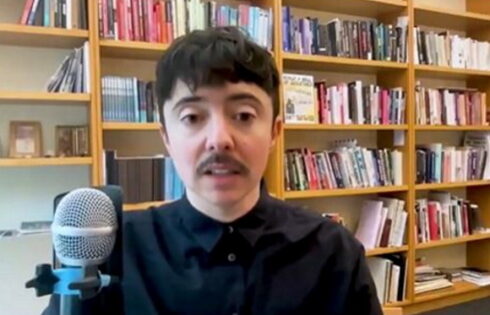
It’s easier to avert a civil war if people understand each other’s premises, and develop some natural sympathy. It’s high time for all liberal arts colleges to set up similar classes.
At a moment when most of higher education in America seems determined to add to its DEI course offerings, including in math and science, Tufts University deserves credit for going in a whole different direction.
Last fall, the Boston-area private liberal arts college initiated a class called American Conservatism. The class, taught by a modern Orthodox Jewish professor named Eitan Hersch, was his response to the fact that there was nothing like it on offer at Tufts.
In an article titled “A Conservative Thought Experiment on a Liberal Campus,” Boston Magazine in its April 2024 issue reported on how the class helped liberal and left-leaning students appreciate debate and open-minded discourse.
The semester began with a discussion of the Cold War, a moment in which the U.S. was at its apex of power post WWII. Good and evil seemed clear, and conservative thinkers like William Buckley were setting out the premises of modern American conservatism.
Hersh said he wanted to present American conservatism as a “unique ideology on its own terms,” not necessarily a product of hundreds of years of European political thought.
“He ultimately organized his course around big, intense political topics such as religion, guns, crime, and affirmative action, using readings pulled from sources as un-Tufts-like as the National Review, the Heritage Foundation, the Claremont Institute, and the Washington Examiner,” the magazine reported.
Professor Hersh, described as a “right-leaning centrist,” explained to the class how he sees the difference between liberalism and conservatism:
“Conservatives tend to believe that people spend their lives resisting the pull of temptation—the snake in the garden—and need clear rules to keep them in line (and clear repercussions when they stray). Liberals, on the other hand, believe that people, when given the luxury of choice, are inclined to do the right thing, which is why they tend to support policies designed to reduce inequality and unfairness and give people the ability to act morally.”
Hersh argued that, according to various studies, conservatives are happier than liberals, in part because they believe in rules, especially in the form of religion, which provide guidance in life, and therefore meaning.
In one class session, the topic of race was discussed. Hersh had students read the work of the brilliant economist Glenn Loury, who points out that, despite the existence of racism, black Americans are not better off being taught that America is a terrible place. They are better off being able to take advantage of opportunities. He highlights the large black middle class that now exists.
Boston Magazine also highlighted one class session focused on a debate on abortion held by the conservative Federalist Society on campus, which was interrupted for 45 minutes by vocal protesters. The students in the class eventually came to see that disruption and destruction is fundamentally anti-intellectual and destroys the opportunity to understand what the other side thinks, according to the reporter.
The class had its heated moments. Debate was acrimonious after Oct. 7, when Hamas killed more than 1,200 Israeli civilians and Students for Justice in Palestine wanted support on campus.
On balance, the writer of the piece, Rachel Slade, who sat in on the classes, thought the students became more humanist and thoughtful. That is an excellent outcome all by itself.
As is clear, the benefit of this class to many of its students is that they are forced to understand the nature of the liberal ideology that they have adopted, to whatever degree. And it isn’t all virtuous or efficacious, or good. Some of it is problematic. And some is dead wrong.
Many studies show that the ratio of liberals to conservatives among professors on most campuses is something like 28:1. And a lot of those professors teach in departments where ideology doesn’t, or shouldn’t, play a role in the classroom, like engineering or chemistry. So it’s not surprising that there are very few classes like Professor Hersh’s. Also, they are decidedly not fashionable.
But the reported success of this class in getting students to think more broadly about many of the issues that face our society suggests that such a class could be extremely useful, both in helping students learn to think critically, and in helping them to understand what they are hearing from the “other side” in our rancorous national debate.
It’s easier to avert a civil war if people understand each other’s premises, and develop some natural sympathy. It’s high time for all liberal arts colleges to set up similar classes.
MORE: Former ‘Bryn Mawr Girl’ finds freedom of thought on conservative campus
IMAGE: Gorodenkoff / Shutterstock
Like The College Fix on Facebook / Follow us on Twitter






Please join the conversation about our stories on Facebook, Twitter, Instagram, Reddit, MeWe, Rumble, Gab, Minds and Gettr.